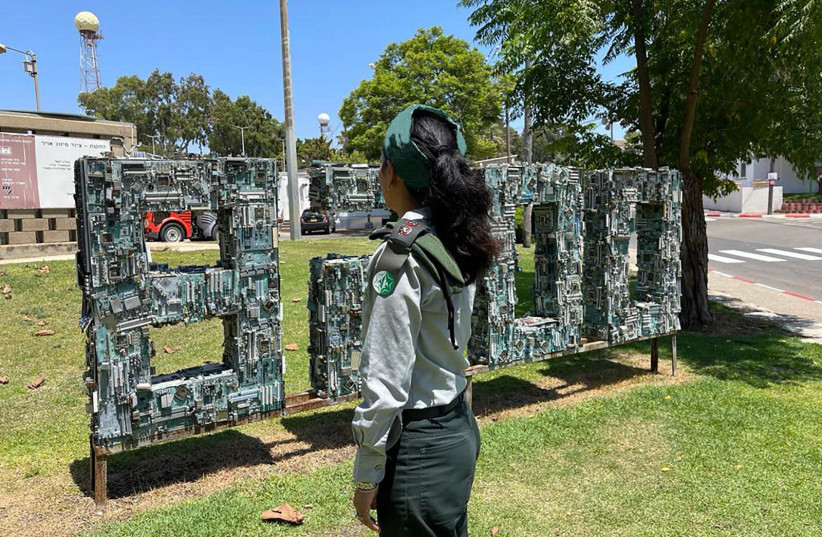PM Netanyahu: IDF cyber intel. experts training 20,000 students

IDF cyber warfare experts are training the next generation to boost the country's defense capabilities
Prime Minister Benjamin Netanyahu on Tuesday said IDF Unit 8200 cyber intelligence officials are now training 20,000 Israeli students to boost the country’s future cyber defense capabilities.
“Nationally, we are building an IDF school for computer science in Beersheba and Unit 8200 is training some 20,000 young people for the field of cyber,” said Netanyahu speaking at the Cybertech conference in Tel Aviv.
The prime minister said that, “The people who are actually practicing defense against cyber attacks are teaching the youngsters – the result is superior.”
A cyber iron dome
Next, Netanyahu said that, “Israel has become a leading cyber power, both on a government level and at the private sector level.”
“Let me focus on the dramatic increase in cyber attacks…emanating from governments. In Israel, we are creating a cyber iron dome. We are using advanced AI [artificial intelligence] and defusing data from multiple sources to deal with multiple attacks as they are all happening” simultaneously, he said.
He spoke about threats both from nation states and ransomware hackers, who might not be affiliated with governments.
Further, he advocated high levels of public and private sector cooperation as well as international cooperation where “the league of like-minded countries with smarts, advanced advanced AI and advanced cyber” capabilities can help each other.
Moreover he said, “Cyberwarfare is in its infancy. The capabilities of cyber war are not limited to democracy, but democracies must pool their resources to defend themselves.”
Earlier at the conference, former IDF intelligence Unit 8200 chief and Team8 Co-Founder and CEO Nadav Zafrir said on Tuesday that “if there is a resolution in 2023,” in the Russia-Ukraine war, cyber attacks will become worse, not better.
“Cyber as part of the toolkit will become the main tool and we will see more threats, not less,” said Zafrir.
The former IDF cyber intelligence chief also said sarcastically that the world is “almost celebrating a year of war in Ukraine. A year ago, no one would believe we would have a global war in Ukraine that looks like World War.”
Next, he discussed “what did not happen. We didn’t see the cyber doomsday weapon come out in Ukraine. We didn’t see it because there was no motivation to take it out. But we did see cyber become a real thing. In this war, it was a part of the toolkit.”
Further, he said that “we will be in the Wild West of cyber in 2023” given a complete breakdown in US-Russia relations leading to unprecedented levels of global nation state and ransomware attacks.
Microsoft Corporate Vice President Michal Braverman-Blumenstyk said that 2022 saw a record $8.4 trillion in losses due to hacking, making up 9% of the world economy.
Mandiant UK Managing Director Stuart McKenzie Mandiant said Russia’s cyber attacks on Ukraine led to “the most sophisticated attacks we have ever seen.”
He said that governments and organizations need to realize that their “crown jewels” of critical items to focus on defending cannot be limited to intellectual property and trade secrets, but also must include how they deliver their services.
Jerusalem Post Store
`; document.getElementById("linkPremium").innerHTML = cont; var divWithLink = document.getElementById("premium-link"); if (divWithLink !== null && divWithLink !== 'undefined') { divWithLink.style.border = "solid 1px #cb0f3e"; divWithLink.style.textAlign = "center"; divWithLink.style.marginBottom = "15px"; divWithLink.style.marginTop = "15px"; divWithLink.style.width = "100%"; divWithLink.style.backgroundColor = "#122952"; divWithLink.style.color = "#ffffff"; divWithLink.style.lineHeight = "1.5"; } } (function (v, i) { });

